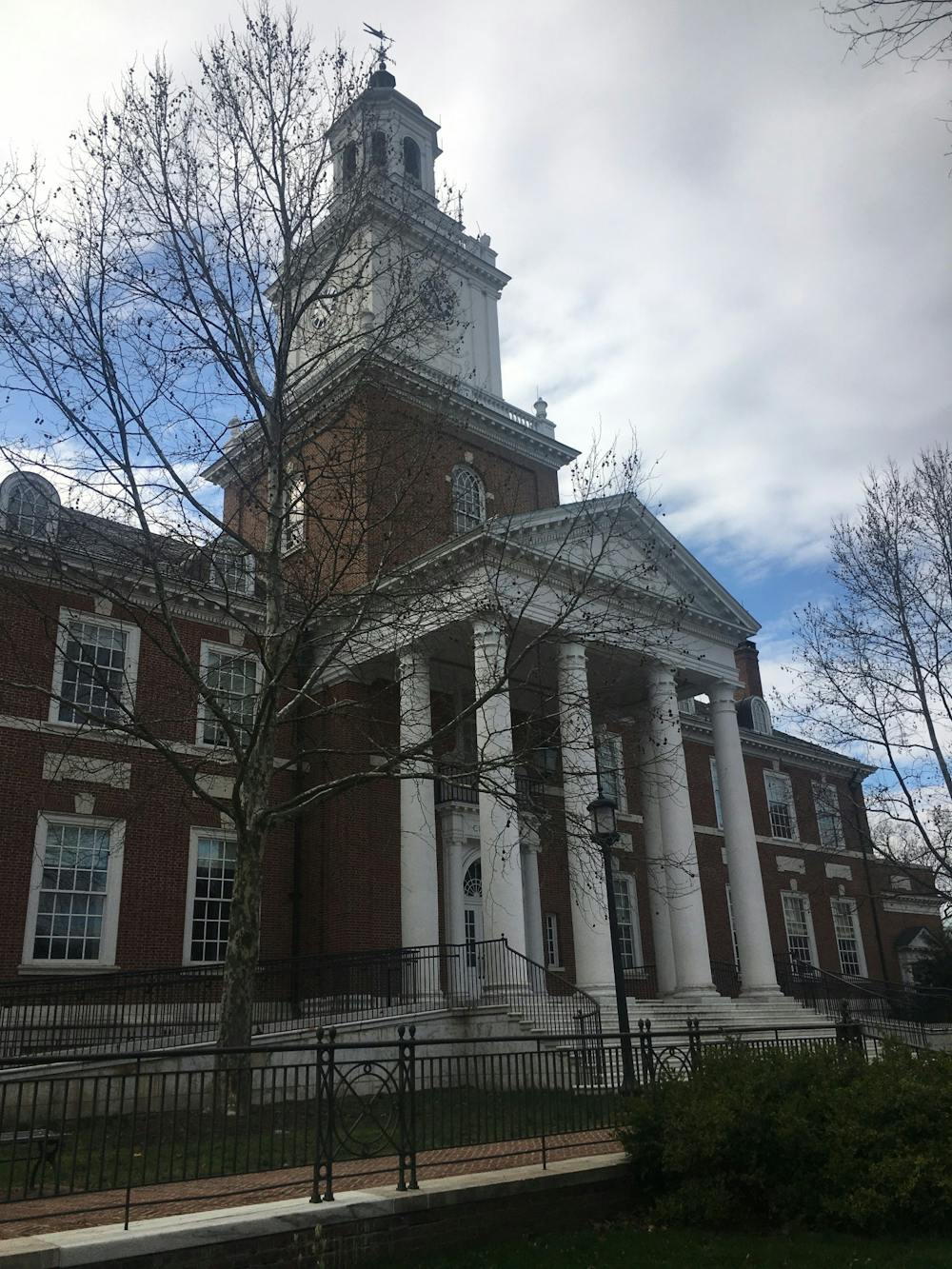Vice Provost for Student Affairs Alanna Shanahan and Associate Vice Provost for Education Janet Schreck announced the formation of a student advisory committee in an email to the student body on May 12. The committee will be tasked with providing feedback on University plans and brainstorming ideas as to what the process of reopening campus might look like amid the ongoing coronavirus (COVID-19) pandemic. University President Ronald J. Daniels suspended in-person classes on March 10.
In an email to The News-Letter, sophomore Marissa McDonald stated that she will strive to prioritize the student experience as a member of the committee.
“I came to Hopkins not simply for an education, but for the opportunities that are presented every day through applied learning and forming connections with people who are leaders in their fields,” she wrote. “I joined the committee so that my remaining two years at Hopkins will be as enriching as the first two and so that incoming students can experience the same Hopkins I experienced.”
McDonald was one of 20 students from an applicant pool of nearly 300 selected to be on the committee. The committee includes undergraduate and graduate students from the Homewood and Peabody campuses, as well as students from the University’s other graduate divisions.
Shanahan explained the reasoning behind establishing this committee in an interview with The News-Letter. Compared to previously established work groups, she said, this committee will be more focused on the bigger picture.
“We felt that this committee would give the 20 students a broad perspective... to give us a sense of how we’re going to try to proceed to bring our communities back to campus,” she said. “It’s trying to give a group of students a holistic look at the fall planning process and allowing them to give holistic feedback.”
Schreck agreed, stressing that student input will be invaluable in the planning process for the upcoming academic year.
“Being able to have their voices represented in the planning is incredibly important to us,” Schreck said. “We need the input to bounce ideas off of but also the creativity of students to help with brainstorming.”
The committee will be meeting twice weekly through the end of June and as necessary in July and August to advise the administration through the planning of the 2020-21 academic year.
Junior Sam Mollin emphasized his goal of ensuring student equity in an email to The News-Letter. He noted issues in how online learning was implemented this spring.
“My biggest priority is to ensure that, in whichever modality we end up with in the fall, we pursue solutions that leave no student behind,” he wrote. “As we’ve learned from the end of this semester post-COVID, alternate forms of learning can be inequitable if left unchecked.”
Harry Paul, a first-year MD/PhD student studying Immunology and Medicine, similarly focused on well-being.
He expressed his desire to ensure the safety of the University’s community during the reopening process in an email to The News-Letter.
“The way in which the university decides to reopen is of utmost importance to protect the health of our communities, especially those at risk,” he said. “I plan to work to balance the needs of the many subgroups of our community, especially the underprivileged.”
Shanahan and Schreck explained that leaders from other workgroups will present to the advisory committee in order to solicit feedback on their plans and thought processes. They believe that this will allow the University to make better plans.
In addition, they hoped that the individuals on the committee who are part of student government associations will be able to obtain more student feedback.
Mollin, who is executive president of the Student Government Association (SGA), affirmed his commitment to communicating with the student body. He explained that it was important to keep students informed as much as possible.
“I intend to use the resources that SGA has to ensure that I am getting student opinion as much as possible. When I can, I hope to (pending confidentiality rules) share my notes from each meeting with the general student body on the SGA website or social media,” he wrote.
Schreck underscored the need for effective communication.
“It’s important to share how complex this decision making is,” Schreck said. “The student committee can help us with figuring out the messaging that makes the decision-making rationale clear. Even if you don’t necessarily agree with the solution, at least you can understand how it was derived.”
Information about the committee’s actions will also be posted on the University’s planning website. Shanahan and Schreck also directed students to an online questionnaire for students where they can share their feedback and concerns about the upcoming academic year.
Shanahan believes that student involvement is highly important during the planning process, including those who are not on the committee.
“I encourage students — whether it’s providing their feedback online, or if it’s coming to town hall meetings in the future or by grabbing one of the students serving on the committee — to get in our ears about their thoughts and ideas,” she said. “A lot of really good ideas will be generated from our students, but they have to get them to us.”
McDonald affirmed that both the committee and administration need to keep student voices in mind as they plan as to how the University moves forward.
“Hopkins has so many intelligent minds, students and faculty, and it is these minds that are going to overcome the issues we face. I envision student involvement at the center of it all, both in the planning and the implementation,” she wrote. “Hopkins has always had an atmosphere of collaboration and problem solving, why stop now?”
Leela Gebo and Michelle Limpe contributed reporting to this article.





